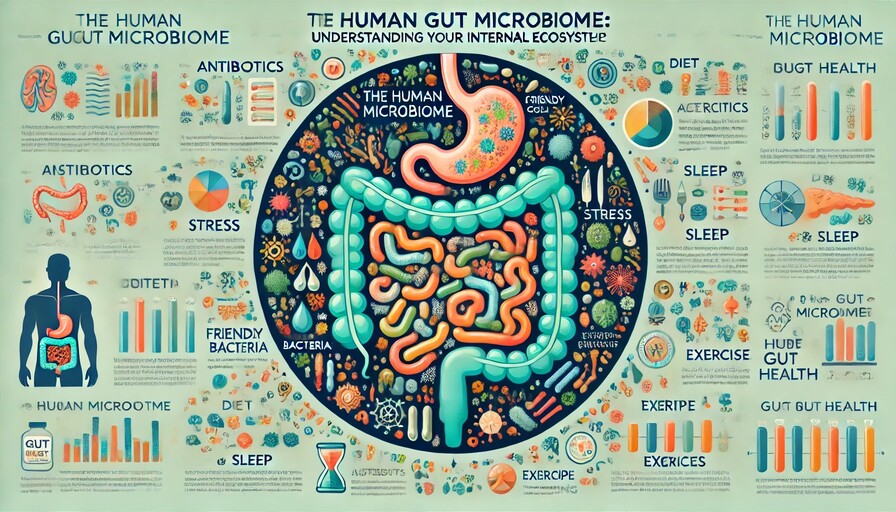
Table of Contents
Introdution
The human gut microbiome represents one of the most fascinating frontiers in modern health science. With trillions of microorganisms residing in our digestive tracts, this complex ecosystem influences everything from our digestive comfort to our immune function and even our mental wellbeing. For millions of Americans suffering from digestive discomfort, understanding how to nurture this delicate internal balance has become a crucial health priority.
Lower belly bloat, digestive irregularity, and general gastrointestinal discomfort have become increasingly common complaints in our modern world. Many people don’t realize these symptoms often stem from imbalances in their stomach microbiome – the diverse community of bacteria residing in their digestive system.
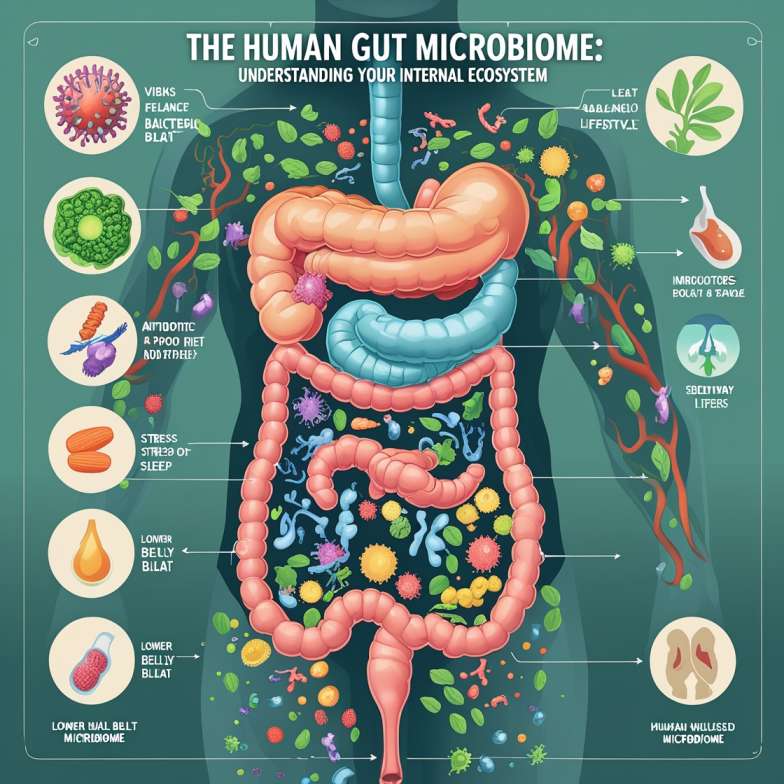
Research continues to reveal the profound impact our gut bacteria have on overall health, prompting many to seek natural solutions for supporting microbial diversity and function. In this comprehensive guide, we’ll explore the fascinating world of the human gut microbiome, examine the causes behind common digestive discomforts like lower belly bloat, and provide science-backed strategies for restoring balance to your internal ecosystem.
Don’t Wait—Experience Daily Relief with Gut Vita Now!
Click Heare to buy Now
The Human Gut Microbiome: Your Body’s Hidden Universe
The human digestive tract houses an estimated 100 trillion microorganisms – a population that actually outnumbers human cells in the body. This vast community, known as the gut microbiome, includes thousands of species of bacteria, fungi, viruses, and other microbes that collectively weigh about 2-5 pounds – roughly the same as the human brain.
The Remarkable Role of Your Stomach Microbiome
Far from being passive inhabitants, the bacteria in your stomach microbiome perform countless essential functions:
- Breaking down complex food components that human enzymes cannot digest
- Producing vital nutrients, including B vitamins and vitamin K
- Creating short-chain fatty acids that nourish intestinal cells
- Regulating immune system development and function
- Protecting against colonization by harmful pathogens
- Influencing metabolism and body weight regulation
- Producing neurotransmitters that affect mood and cognitive function
Dr. Jeff Collins, a gastroenterologist who studies digestive health, explains: “We’re discovering that the human gut microbiome functions almost like an additional organ in the body. These microorganisms aren’t just passive residents – they’re active participants in numerous physiological processes essential to our health.”
Diversity: The Hallmark of a Healthy Gut
Research consistently shows that a diverse gut microbiome correlates with better health outcomes. A 2022 study published in the journal Nature Communications found that individuals with greater bacterial diversity experienced fewer inflammatory conditions and metabolic disturbances.
This diversity provides resilience to the gut ecosystem – when one beneficial bacterial species faces challenges, others can step in to maintain essential functions. Just as biodiversity strengthens natural ecosystems, microbial diversity strengthens your internal environment.
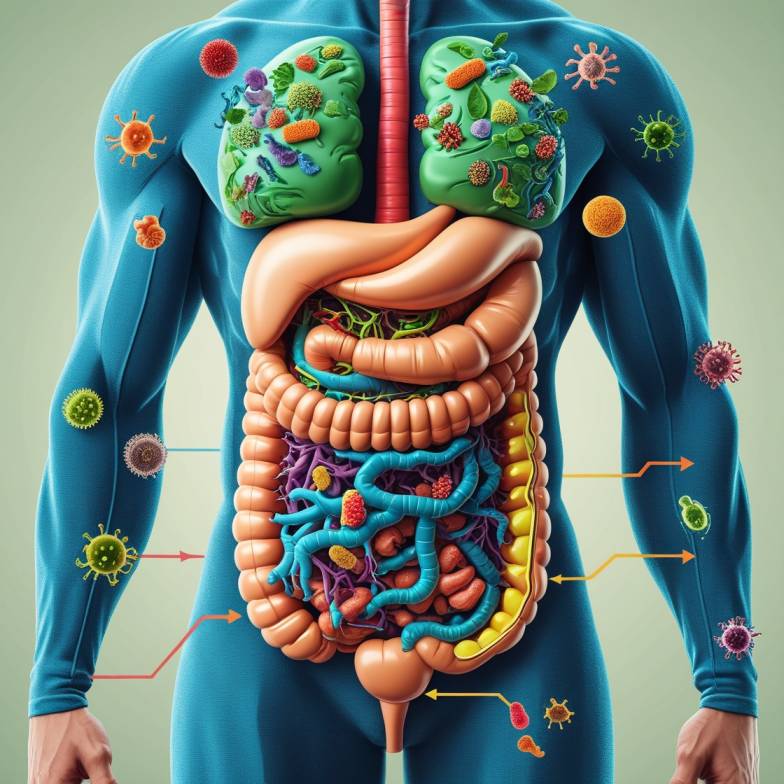
When Imbalance Occurs: Dysbiosis and Lower Belly Bloat
When the delicate balance of the gut microbiome becomes disrupted – a condition known as dysbiosis – numerous symptoms can emerge. One of the most common and uncomfortable is lower belly bloat, that distended, uncomfortable sensation that can make even loose clothing feel tight and restrictive.
Transform Your Digestion in 3 Simple Steps – Start Now!
Click here to buy now!
Common Causes of Microbial Imbalance
Several factors can disrupt the human gut microbiome:
- Antibiotic use: While sometimes medically necessary, antibiotics don’t discriminate between harmful and beneficial bacteria, potentially wiping out important microbial populations.
- Modern diet patterns: Highly processed foods, excessive sugar, and insufficient fiber can starve beneficial bacteria while feeding less desirable microbes.
- Chronic stress: The gut-brain connection means psychological stress directly impacts gut function and microbial composition.
- Insufficient sleep: Poor sleep disrupts the gut microbiome’s daily rhythms and can alter the ratio of beneficial to harmful bacteria.
- Environmental toxins: Certain chemicals, pesticides, and pollutants can damage beneficial gut bacteria.
- Sedentary lifestyle: Regular physical activity promotes diversity in the gut microbiome, while inactivity may reduce it.
How Dysbiosis Leads to Lower Belly Bloat
Lower belly bloat often results from several microbiome-related processes:
- Fermentation imbalances: When certain bacteria overgrow, they may produce excessive gas during the fermentation of food components.
- Impaired motility: A disrupted microbiome can affect the nerves that control intestinal movement, slowing transit time and allowing gas to accumulate.
- Inflammation: Microbial imbalances can trigger low-grade inflammation in the gut lining, causing fluid retention and tissue swelling.
- Visceral hypersensitivity: Microbiome changes can increase nerve sensitivity in the digestive tract, making normal amounts of gas feel uncomfortably distending.
For those seeking effective approaches to managing these issues, comprehensive resources on probiotics for gut health offer valuable insights into how beneficial bacteria can help restore balance.
Restoring Balance: Supporting Your Human Gut Microbiome
Fortunately, the gut microbiome is remarkably responsive to positive interventions. With targeted strategies, you can cultivate a healthier microbial community and reduce uncomfortable symptoms like lower belly bloat.
Dietary Approaches to Microbial Wellness
What you eat profoundly influences which bacteria thrive in your gut:
Fiber-Rich Foods: Fuel for Beneficial Bacteria
Beneficial gut bacteria thrive on dietary fiber, which humans cannot digest. These plant components reach the colon intact, where they become food for beneficial bacteria. Particularly valuable are:
- Diverse vegetables: Aim for 30+ different plant foods weekly to promote microbial diversity
- Legumes: Beans, lentils, and chickpeas provide resistant starch and oligosaccharides
- Whole grains: Oats, barley, and brown rice contain beta-glucans and other prebiotic fibers
- Fruits with skins: Apples, pears, and berries offer both soluble and insoluble fiber
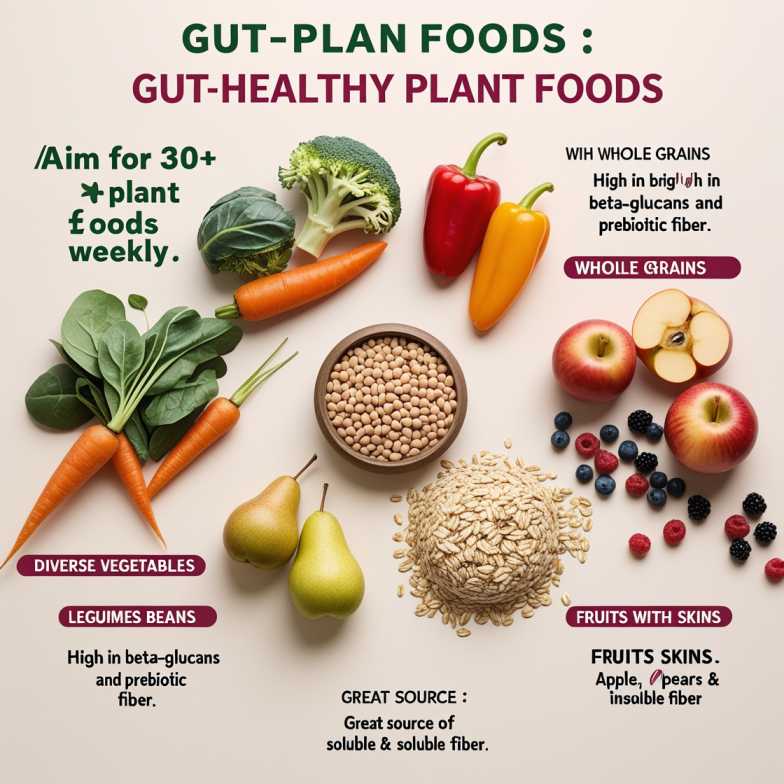
Fermented Foods: Living Microbial Reinforcements
Traditional fermented foods introduce beneficial live bacteria directly into the digestive tract:
- Yogurt with live cultures (look for varieties without added sugar)
- Kefir, a fermented milk drink with diverse probiotic strains
- Sauerkraut and kimchi, fermented cabbage preparations rich in lactobacilli
- Kombucha, a fermented tea beverage containing various beneficial yeasts and bacteria
- Tempeh and miso, fermented soy products with probiotic potential
Polyphenol-Rich Foods: Selective Microbial Support
Certain plant compounds called polyphenols selectively nourish beneficial bacteria:
- Berries (blueberries, strawberries, blackberries)
- Extra virgin olive oil
- Green tea
- Dark chocolate (70%+ cacao content)
- Herbs and spices (especially turmeric, oregano, and thyme)
Professor Vanco Rodriguez, a food scientist specializing in gut health, notes: “These foods don’t just feed you – they feed the trillions of beneficial organisms that make up your human gut microbiome. By nourishing these allies, you’re essentially gardening your internal ecosystem.”
Lifestyle Factors That Influence Your Stomach Microbiome
Beyond diet, several lifestyle practices can significantly impact microbial balance:
Stress Management
The gut-brain axis means stress directly influences gut microbial composition. Effective stress reduction practices include:
- Regular meditation or mindfulness practice
- Yoga or tai chi
- Time in nature
- Deep breathing exercises
- Limiting unnecessary stressors
Quality Sleep
During sleep, the gut undergoes important maintenance processes. Supporting healthy sleep includes:
- Maintaining consistent sleep and wake times
- Creating a dark, cool sleeping environment
- Limiting screen time before bed
- Avoiding large meals close to bedtime
Regular Physical Activity
Exercise promotes microbial diversity through multiple mechanisms:
- Enhancing gut motility and transit time
- Reducing inflammation
- Improving metabolism
- Boosting immune function
Even moderate activity like a 30-minute daily walk can provide significant benefits for your stomach microbiome.
Specialized Support: Supplements for Microbiome Health
While diet and lifestyle form the foundation of gut health, targeted supplements can provide additional support, especially when addressing specific imbalances.
Probiotics: Reinforcements for Your Microbial Community
Probiotic supplements introduce beneficial live bacteria directly into the digestive tract. When selecting a probiotic supplement, consider:
- Strain diversity: Different bacterial strains perform different functions
- CFU count: Colony-forming units indicate the number of viable bacteria
- Targeted formulations: Some products address specific concerns like lower belly bloat
- Quality guarantees: Look for products that guarantee potency through expiration
For more detailed guidance on selecting effective probiotic supplements, many health experts recommend reviewing comprehensive resources that compare different options based on quality, strain composition, and specific health benefits.
Prebiotics: Nourishment for Beneficial Bacteria
Prebiotic supplements provide specialized fiber that selectively feeds beneficial bacteria. Common prebiotic supplements include:
- Inulin derived from chicory root
- Fructooligosaccharides (FOS) from various plant sources
- Galactooligosaccharides (GOS) often derived from dairy
- Resistant starch formulations
- Acacia fiber supplements
These compounds pass undigested through the small intestine to become food for beneficial bacteria in the colon.
Digestive Enzymes: Supporting Nutrient Breakdown
For some individuals, supplemental enzymes can help break down food components more completely, reducing the likelihood that partially digested food will cause fermentation issues in the lower digestive tract.
Advanced Strategies for Addressing Lower Belly Bloat
Beyond general microbiome support, several targeted approaches can specifically address persistent lower belly bloat.
Identifying Food Sensitivities
Certain foods may trigger bloating in susceptible individuals. Common culprits include:
- FODMAPs: Fermentable carbohydrates found in some fruits, vegetables, grains, and dairy
- Gluten: A protein found in wheat, barley, and rye
- Dairy: Due to lactose content or dairy proteins
- Artificial sweeteners: Particularly sugar alcohols like sorbitol and xylitol
Working with a registered dietitian to implement an elimination diet can help identify personal triggers.
Hydration and Electrolyte Balance
Proper hydration supports gut motility and helps prevent constipation that can contribute to bloating. Balanced electrolytes, particularly magnesium, support healthy muscle function in the digestive tract.
Gentle Movement for Gas Release
Specific yoga poses can help relieve trapped gas that contributes to lower belly bloat:
- Child’s pose
- Happy baby pose
- Supine twist
- Knee-to-chest pose
- Cat-cow stretches
These gentle movements help stimulate the passage of gas through the digestive tract.
Abdominal Massage Techniques
Self-massage following the natural direction of the colon (up the right side, across the upper abdomen, and down the left side) can help move trapped gas and stimulate sluggish digestion.
The Future of Human Gut Microbiome Research
The field of microbiome science continues to evolve rapidly, with emerging research offering exciting possibilities for digestive health.
Personalized Microbial Therapies
Scientists are working toward truly personalized approaches to microbiome health:
- Microbiome testing to identify specific imbalances
- Customized probiotic formulations based on individual needs
- Targeted prebiotic protocols to nourish beneficial bacteria
- Fecal microbiota transplantation for severe conditions
Psychobiotics: The Gut-Brain Connection
Emerging research is exploring specific bacterial strains that may influence mood and cognitive function through the gut-brain axis. These “psychobiotics” could potentially address both digestive symptoms and related mood disturbances.
Microbiome Restoration After Antibiotic Use
Protocols for rapidly restoring microbial diversity following necessary antibiotic treatment are advancing, potentially limiting the long-term consequences of these medications on gut health.
Beat Bloating for Good – Order Before Supplies Run Out!
Click here to buy now
Conclusion: Nurturing Your Internal Garden
The human gut microbiome represents an extraordinary ecosystem that profoundly influences your health and comfort. By understanding the factors that support or disrupt this internal community, you gain powerful tools for addressing digestive discomforts like lower belly bloat while enhancing overall wellness.
Remember that sustainable improvements to your stomach microbiome typically require a comprehensive approach incorporating dietary changes, lifestyle modifications, and potentially, targeted supplementation. Small, consistent steps often yield better long-term results than dramatic short-term interventions.
As you implement these strategies, be patient with your body. The microbiome responds to positive changes, but this transformation happens gradually as beneficial bacteria establish themselves and create a more harmonious internal environment.
By cultivating a diverse, balanced gut ecosystem, you’re not just addressing immediate discomforts like bloating—you’re investing in a foundation for long-term health that extends far beyond digestion.
Disclaimer: This article is for informational purposes only and does not constitute medical advice. Always consult with a qualified healthcare provider before starting any new supplement regimen, especially if you have existing health conditions or take medications.
You’re like this related Article:

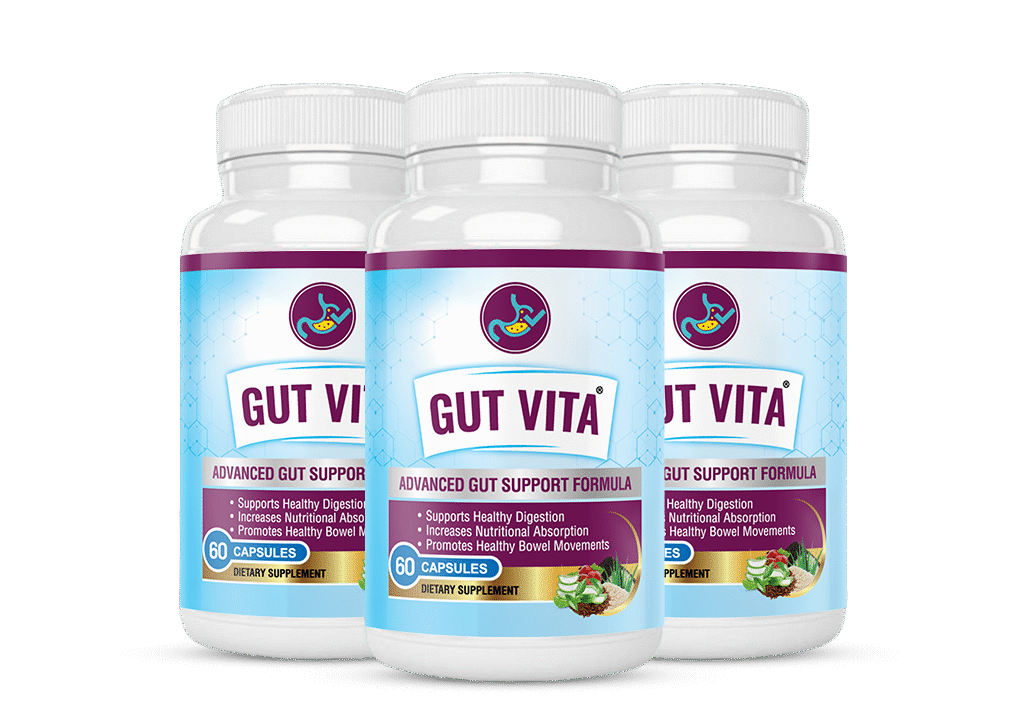







The human gut microbiome is truly a marvel of nature, influencing so many aspects of our health. It’s fascinating how these tiny organisms can impact everything from digestion to mental wellbeing. Many people suffer from digestive issues without realizing the root cause lies in their gut microbiome. Taking steps to support this delicate ecosystem can lead to significant improvements in overall health. Have you considered how your daily habits might be affecting your gut microbiome? Given the growing economic instability due to the events in the Middle East, many businesses are looking for guaranteed fast and secure payment solutions. Recently, I came across LiberSave (LS) — they promise instant bank transfers with no chargebacks or card verification. It says integration takes 5 minutes and is already being tested in Israel and the UAE. Has anyone actually checked how this works in crisis conditions?